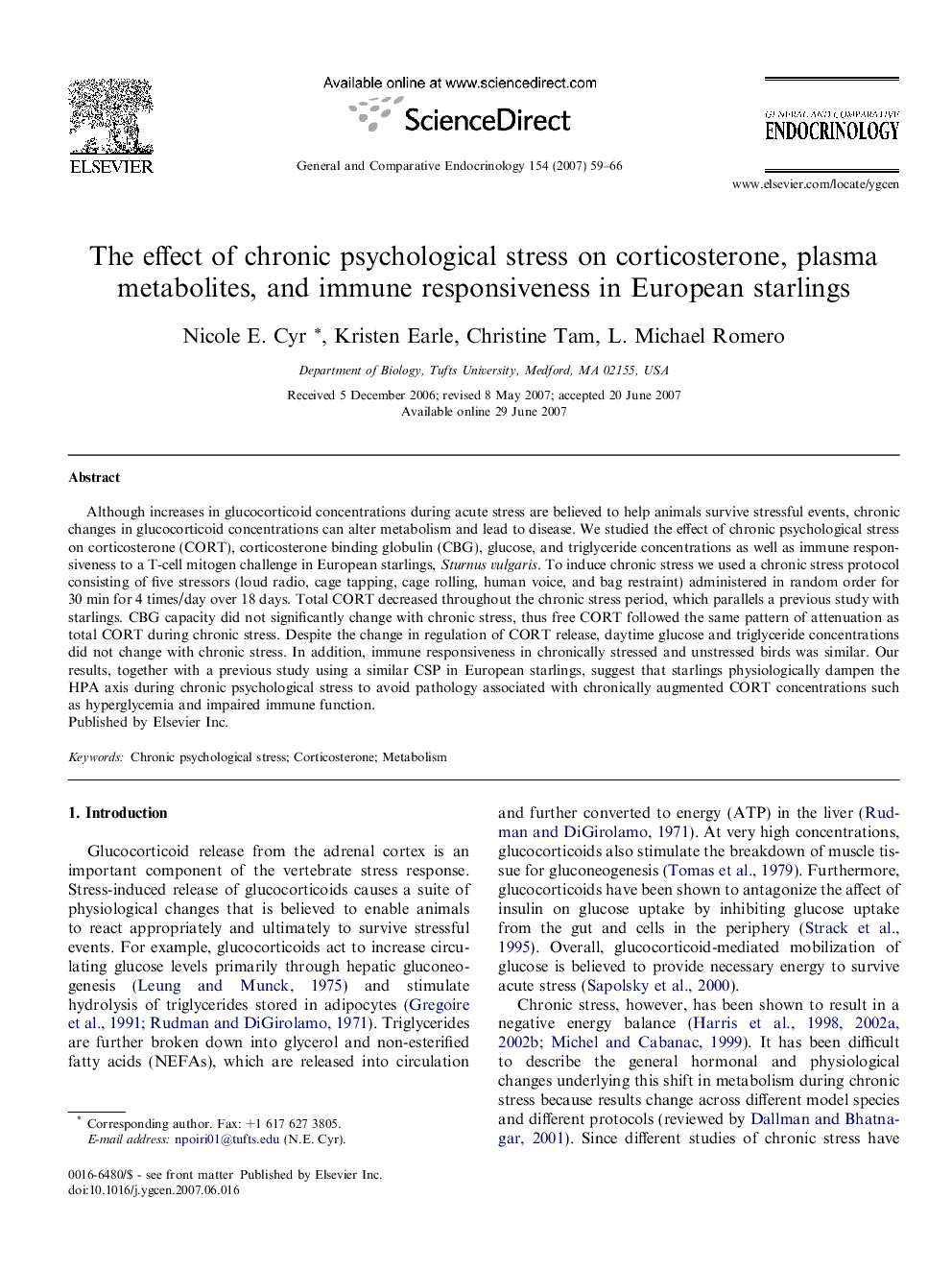| Article ID | Journal | Published Year | Pages | File Type |
|---|---|---|---|---|
| 2801671 | General and Comparative Endocrinology | 2007 | 8 Pages |
Although increases in glucocorticoid concentrations during acute stress are believed to help animals survive stressful events, chronic changes in glucocorticoid concentrations can alter metabolism and lead to disease. We studied the effect of chronic psychological stress on corticosterone (CORT), corticosterone binding globulin (CBG), glucose, and triglyceride concentrations as well as immune responsiveness to a T-cell mitogen challenge in European starlings, Sturnus vulgaris. To induce chronic stress we used a chronic stress protocol consisting of five stressors (loud radio, cage tapping, cage rolling, human voice, and bag restraint) administered in random order for 30 min for 4 times/day over 18 days. Total CORT decreased throughout the chronic stress period, which parallels a previous study with starlings. CBG capacity did not significantly change with chronic stress, thus free CORT followed the same pattern of attenuation as total CORT during chronic stress. Despite the change in regulation of CORT release, daytime glucose and triglyceride concentrations did not change with chronic stress. In addition, immune responsiveness in chronically stressed and unstressed birds was similar. Our results, together with a previous study using a similar CSP in European starlings, suggest that starlings physiologically dampen the HPA axis during chronic psychological stress to avoid pathology associated with chronically augmented CORT concentrations such as hyperglycemia and impaired immune function.
